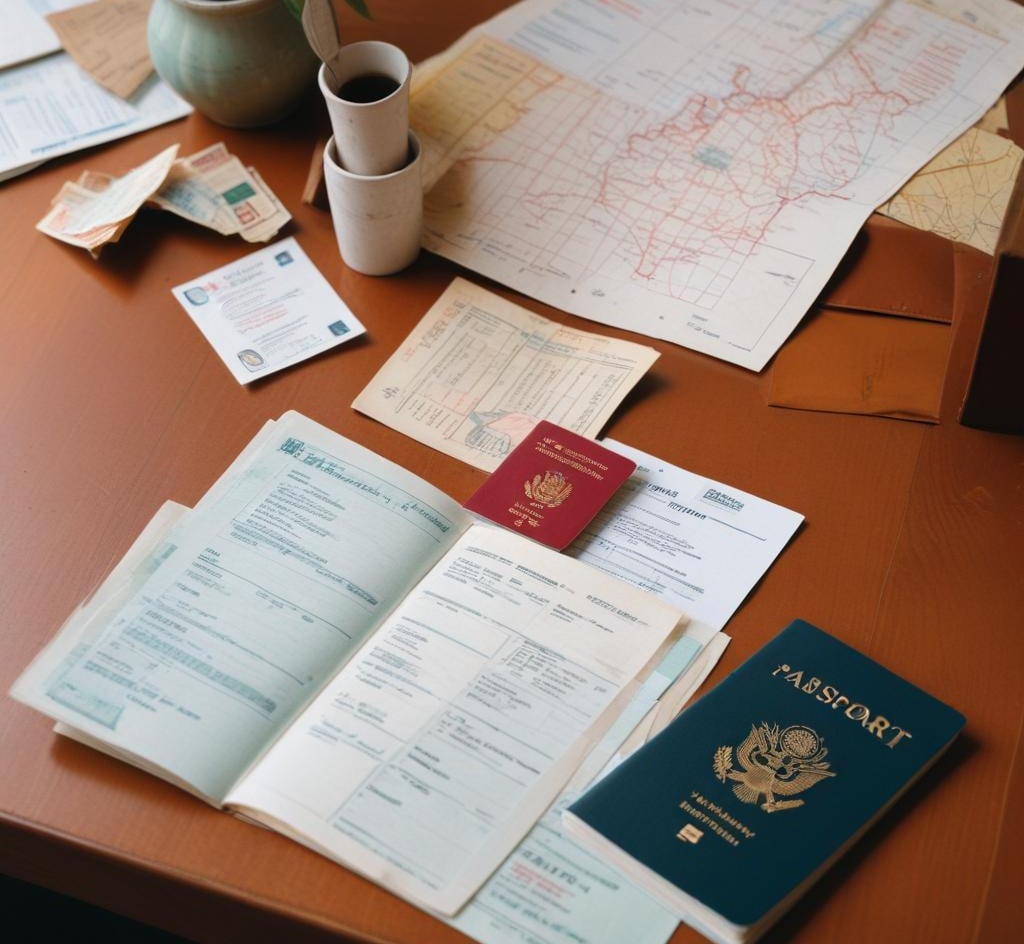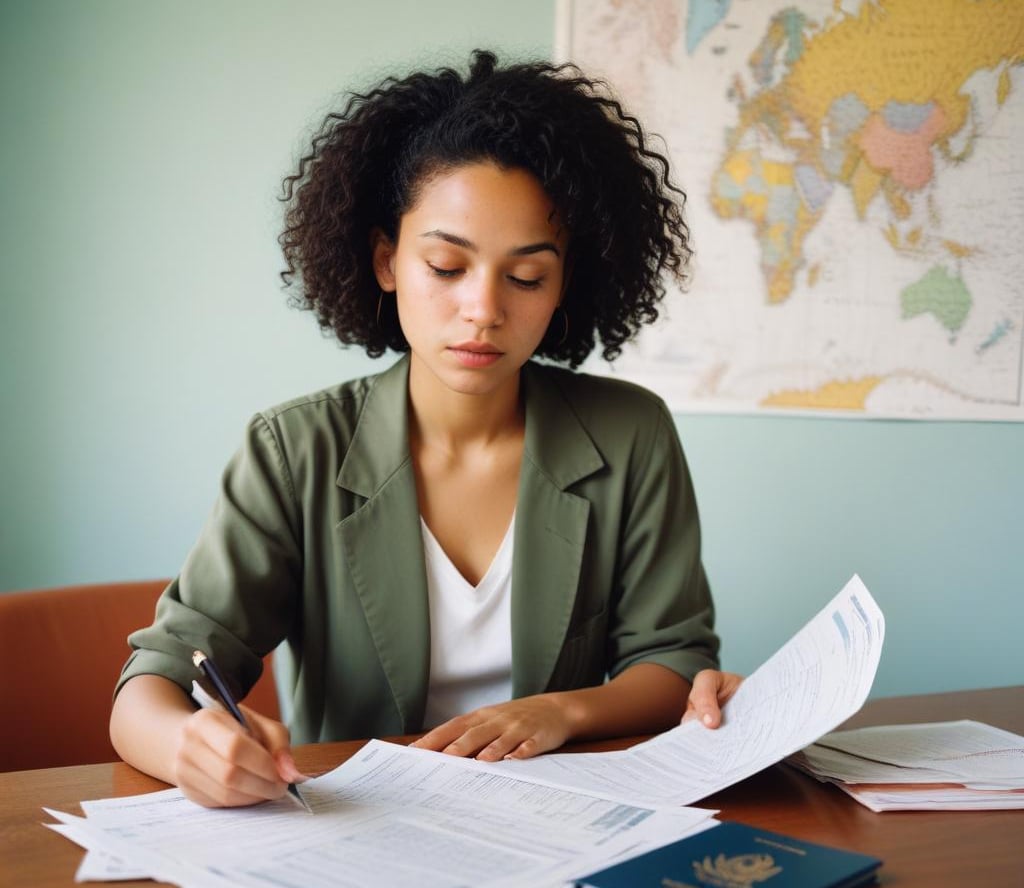Essential Travel Documents: What You Need to Know Before Your Next Adventure
TRAVEL INFO
7/7/20243 min read


Planning a trip is an exciting endeavor filled with anticipation for new experiences and discoveries. Amidst the excitement, ensuring you have the necessary travel documents to avoid any unexpected hurdles along the way is crucial. Whether you're jetting off to a tropical paradise or embarking on a cultural exploration, here's a comprehensive guide to the essential travel documents you need to have in your possession.
1. Passport: Your Gateway to the World
Your passport is undoubtedly the most vital travel document. It serves as your primary identification and allows you to enter foreign countries. Here are some key points to remember:
- Validity: Check your passport's expiration date well before your trip. Many countries require your passport to be valid for at least six months beyond your intended stay.
- Visas: Some countries require a visa for entry, which may need to be obtained in advance. Research visa requirements for your destination and allow ample time for processing.
- Copy: It's a good idea to carry a photocopy or digital scan of your passport's information page separately from your actual passport. This can be helpful in case your passport gets lost or stolen.
2. Visa (if required): Navigating Entry Requirements
Visa requirements vary widely depending on your nationality and the country you plan to visit. Here's what you need to know:
- Research: Visit your destination country's official embassy or consulate website to determine if you need a visa and the application process involved.
- Types: There are different types of visas, such as tourist, business, student, or work visas. Make sure to apply for the correct type based on your travel purpose.
- Application Timeline: Visa processing times can vary significantly, so apply before your departure date to avoid any last-minute stress.
3. Travel Insurance: Protecting Your Journey
Travel insurance provides financial protection against unexpected events such as trip cancellations, medical emergencies, or lost luggage. Here's what to consider:
- Coverage: Review the coverage details carefully to ensure it meets your needs, including medical expenses abroad, trip cancellation/interruption, and emergency evacuation.
- Policy Documents: Keep a copy of your travel insurance policy and emergency contact information handy during your trip.
4. Itinerary and Confirmation Documents: Keeping Organized
Organize your travel itinerary and keep the following documents accessible:
- Flight Tickets: Print or have digital copies of your tickets or e-tickets.
- Hotel Reservations: Confirmation emails or vouchers for your accommodations.
- Transportation: Keep relevant booking confirmations if renting a car or using other transportation services.
5. Vaccination Records: Health Precautions
Some countries may require proof of specific vaccinations, particularly if you're traveling from or through regions with endemic diseases. Research vaccination requirements and carry your vaccination records with you if needed.
6. International Driving Permit (IDP): Driving Abroad
If you plan to rent a car and drive in a foreign country, check if you need an International Driving Permit (IDP). An IDP translates your driver's license into several languages and is recognized in many countries.
7. Credit Cards and Cash: Financial Preparedness
- Credit Cards: Notify your bank of your travel plans to avoid having your cards flagged for suspicious activity. Carry at least one major credit card for emergencies.
- Cash: Have local currency on hand for immediate expenses, such as transportation or small purchases upon arrival.
Final Tips:
- Check Requirements Early: Start gathering and reviewing your travel documents well before your departure date. This proactive approach will give you ample time for any necessary applications or renewals, making you feel in control of your travel preparations.
- Keep Copies: Make copies or take photos of all essential documents, including your passport, visa, and insurance policy. Store these in a secure location separate from the originals. In case of loss or theft, having these copies can expedite the process of getting replacements. Also, report any lost or stolen documents to the local authorities and your embassy or consulate immediately.
- Stay Informed: Keep yourself updated on any travel advisories or entry requirements for your destination. This will ensure you are well-prepared for any unexpected changes, making you feel secure and well-informed.
By ensuring you have all the necessary travel documents, you'll be well-prepared to embark on your journey with peace of mind, allowing you to focus on creating unforgettable travel memories. This guide is here to support and guide you. Happy travels!


Explore
admin@roamingnomad.net
Discover
Welcome to our gaming blog, your gateway to thrilling adventures in virtual worlds! Dive into stunning landscapes, conquer epic quests, and explore captivating gaming cultures. Whether you're a seasoned player or a curious newcomer, this is your ultimate portal to endless adventure and discovery. 🎮✨
Copyright © Roaming nomad 2024. All rights reserved.
